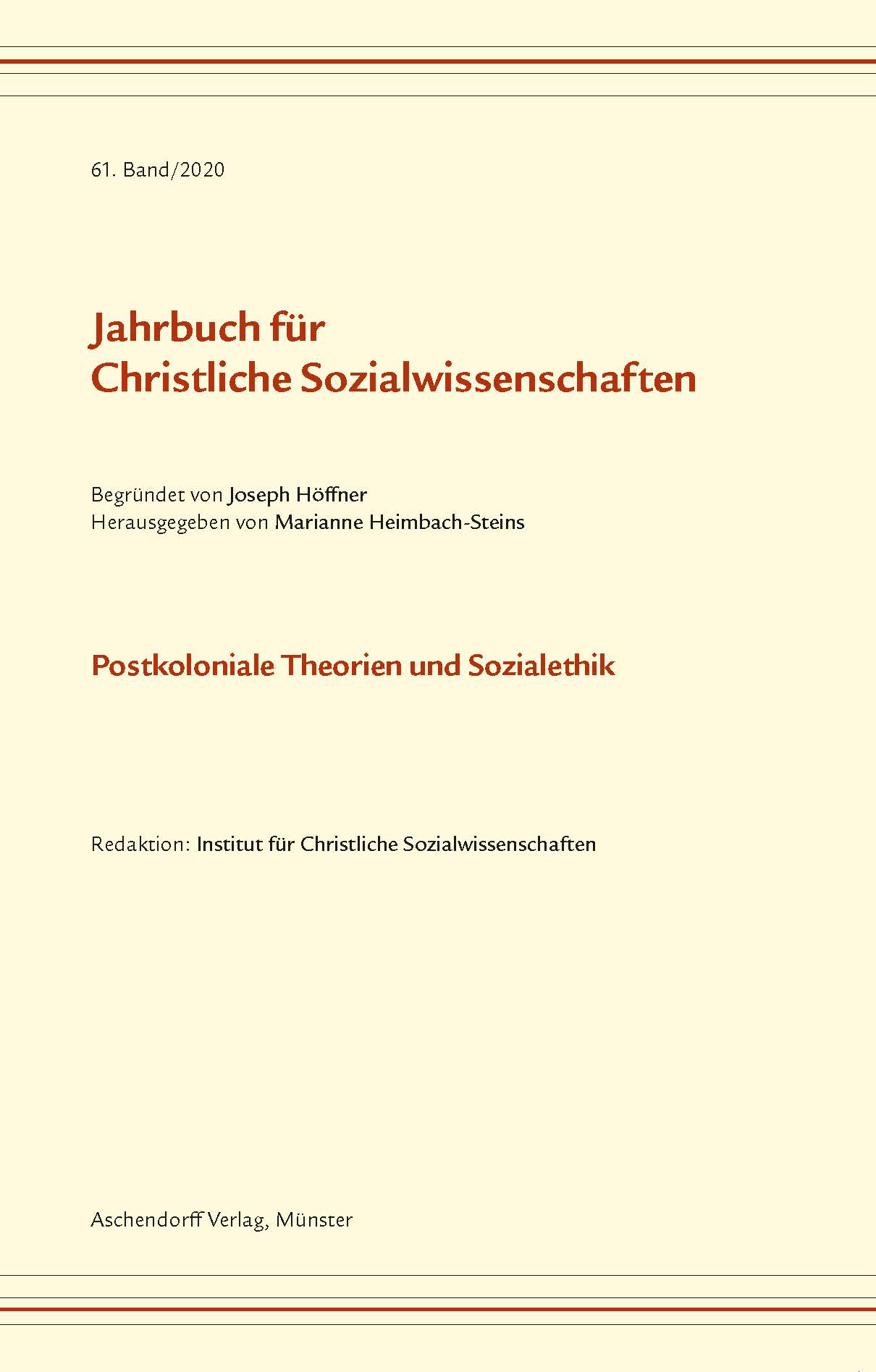Welcher (V)Erkenntnisgewinn?
Postkolonialismus und Christliche Sozialethik
DOI:
https://doi.org/10.17879/jcsw-2020-2979Abstract
The contribution assumes that the findings of postcolonial studies will set ethical reflection in motion in terms of content and methodology – or could do so if the inquiries were allowed to take place. The contribution therefore attempts to take these findings seriously and to rethink its own positions and concepts from the other point of view. This is necessary in order to overcome various ways of misjudgment in ethical reflection. The coloniality of knowledge leads to misjudging other forms of knowledge and to elevating one's own to the norm. This is also accompanied by a misjudgment of subjects: many who are affected by the consequences of ethical decisions are not involved in this decisions and there are no formats in which they could participate. The article uncovers these and other blind spots, criticizes them and gives impulses for a (self-)critical context-sensitive social ethics that does justice to its responsibility resulting from historical and geographical entanglement.

